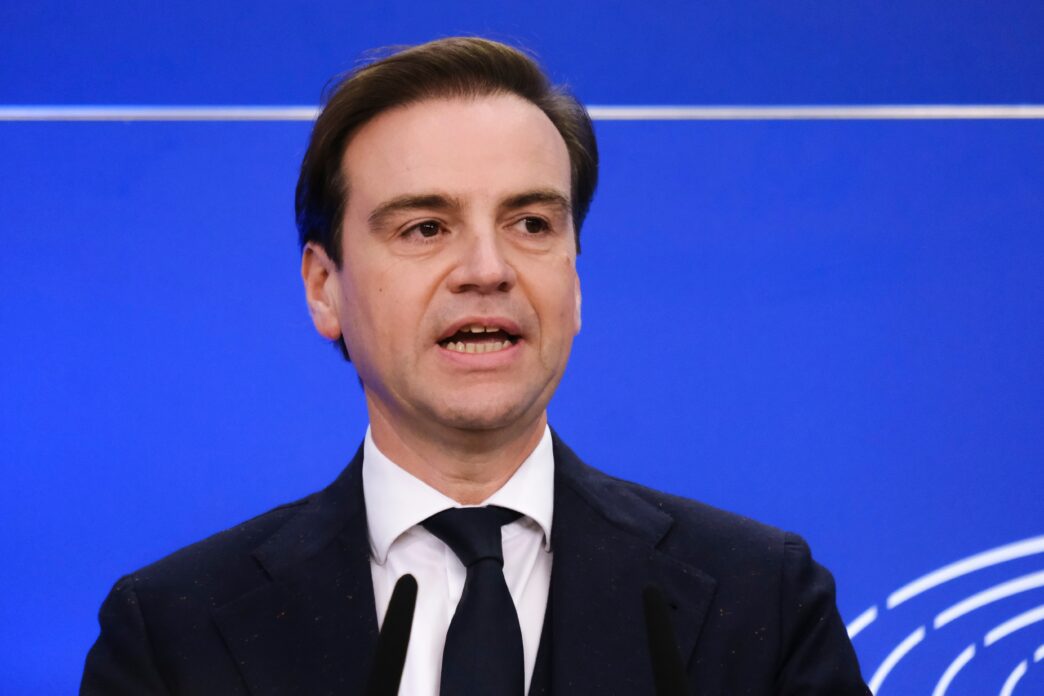Executive Summary
- The European Parliament’s draft report on the EU Return Regulation prioritizes voluntary returns, proposes reducing migrant detention to 18 months, and prohibits placing minors and families in third-country “return hubs.”
- The report advocates for expanding Frontex’s monitoring powers through a new “European Monitoring Mechanism for Removals” to enhance oversight of removals across the EU.
- The Parliament’s proposals diverge significantly from the Council’s position on issues such as detention limits, the use of third-country return hubs for minors, and the automatic recognition of return decisions.
The Story So Far
- The debate surrounding the EU’s Return Regulation is a pivotal part of the European Commission’s broader overhaul of its migration framework, aiming to balance efficient asylum application processing with civil rights. This process is characterized by significant divergence between the European Parliament, which advocates for a more lenient approach prioritizing voluntary returns and robust safeguards for vulnerable individuals, and the Council, which generally favors stricter measures including longer detention periods and different conditions for migrant returns. These differing perspectives highlight the complex legislative path to reconcile varied member state interests and human rights concerns within a unified EU migration policy.
Why This Matters
- The European Parliament’s proposed revisions to the EU’s Return Regulation, which prioritize voluntary returns, reduce detention periods, and strengthen safeguards for vulnerable individuals, signal a more rights-protective approach that sharply contrasts with the Council’s tougher stance, indicating a challenging and potentially protracted path toward finalizing a unified EU migration policy.
Who Thinks What?
- The European Parliament’s civil liberties committee, through its draft report, advocates for a more lenient approach to the EU’s Return Regulation, prioritizing voluntary return, reducing the maximum detention period to 18 months, strengthening safeguards for vulnerable individuals, and prohibiting minors and families from being placed in third-country return hubs.
- The Council and several member states, including France, Germany, and Belgium, maintain a stricter stance, favoring a 24-month detention limit, not ruling out returning minors to third-country return hubs “where adequate conditions exist,” and expressing concerns about the mandatory application of mutual recognition for return decisions.
- Marieke Ehlers, PfE shadow rapporteur, criticizes the Parliament’s proposal, arguing it “rewards delay and feeds the asylum lobby,” and instead advocates for linking third-country cooperation on returns to trade, visas, and aid, while granting EU countries more flexibility in enforcing returns.
The European Parliament’s civil liberties committee is set to debate a draft report on the EU’s Return Regulation this Tuesday, a pivotal component of the European Commission’s broader migration framework overhaul. Submitted by Dutch MEP Malik Azmani of the Renew group, the report seeks to balance efficient asylum application processing with civil rights, presenting a more lenient approach than the Commission’s original proposal and highlighting stark differences with the Council’s position.
Parliament’s Proposed Revisions
The draft report, seen by Euractiv, significantly alters the Commission’s initial proposal from March, which had prioritised forced removal of migrants. Parliament’s text inverts this order, placing voluntary return as the primary objective, and proposes reducing the maximum detention period for migrants from 24 to 18 months. It further stipulates that detention should be a measure of last resort, strengthens safeguards for vulnerable individuals, and explicitly prohibits minors and families from being placed in “return hubs” in third countries, addressing concerns about offshoring EU migration procedures.
Additionally, the Parliament’s draft mandates that the European Parliament be informed whenever an EU country establishes return hubs in a third country. This aims to enhance democratic oversight of externalised migration processes.
Frontex’s Enhanced Monitoring Role
The report also advocates for expanding the monitoring powers of Frontex, the EU border guard agency, through a new “European Monitoring Mechanism for Removals.” This mechanism would replace existing national systems, introducing common reporting standards, data collection, and oversight for removals across the EU. Discussions within the Council indicate a leaning towards giving Frontex a greater role in coordinating returns between third countries, aligning with the agency’s mandate review scheduled for next year.
Divergence with Council and Member States
The Parliament’s draft stands in contrast to the Council’s latest compromise, circulated on October 24. The Council’s position maintains the longer 24-month detention limit and does not rule out returning minors to third-country return hubs “where adequate conditions exist.” Another point of contention is the automatic recognition of return decisions, which Parliament seeks to implement one year after the Regulation’s entry into force. However, mutual recognition remains a sensitive issue for the Council, with member states like France, Germany, and Belgium expressing concerns about potential burdens, and Belgium opposing its mandatory application.
Political Reactions and Next Steps
The Parliament’s proposal has drawn criticism from some quarters. Marieke Ehlers, PfE shadow rapporteur, told Euractiv that the report “rewards delay and feeds the asylum lobby.” Ehlers advocates for linking third-country cooperation on returns to trade, visas, and aid, and granting EU countries more flexibility in enforcing returns. Amendments to the draft are expected within two weeks, with a committee majority anticipated in January or February.
Tuesday’s debate is crucial for setting the tone as the Parliament prepares to finalise its position ahead of trilogue negotiations, scheduled for early 2026. Concurrently, EU ministers are working towards reaching a general approach on the migration pact by their final ministerial meeting of the year in December, highlighting the complex legislative path ahead for EU migration policy.








